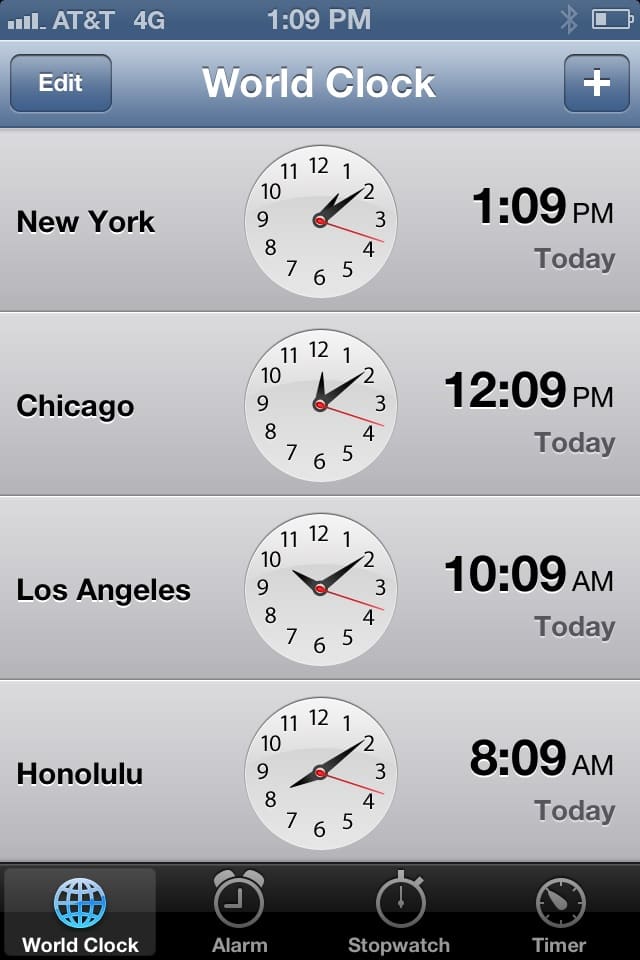10-Hour Workdays: Pros and Cons for the Full-Time Employee

Workers all over the United States are balancing personal and professional responsibiliites to lead successful lives. For some, 10-hour shifts appear favorable to assist with this pursuit of happiness.
Author
Working 10 Hours a Day
Many full-time employees, those who work 40 hours per week, have the opportunity to work 10-hour shifts in order to have three days off per week. For these employees, having this extra weekday free to run errands, schedule personal appointments, and just have an extra day off is very appealing. Managers like having this option as it affords the employee some flexibility in how they balance their personal time with that of their work commitments. Having happy employees leads to a healthier and more productive workplace.
While there are many perks to being able to work longer days, employees should be aware of some of the drawbacks that exist when considering such a schedule. With the addition of another day as a regularly scheduled day off, employees have other challenges to consider when they choose or are assigned four 10-hour shifts during the week. Through awareness of both the pros and cons of the 10-hour workday, employees and managers can know whether such a workday will run effectively to meet the professional and personal demands of both the employee and the employer.
Cons to Consider of Working a 10-hour Shift
Before accepting a job that requires an employee to work 10-hour shifts, they must be prepared for the challenges that would be faced with such a schedule. Some common issues to consider:
- Fatigue. Employees who work longer workdays have a tendency to really feel exhausted by the last day of their four-day workweek. Working long hours all week can be stressful after some time on this schedule. The day off then becomes a day of recovery from a hard week of cramming everything into only four workdays.
- Shorter Time in Evenings With Family. When workdays are longer, the remaining time at the end of the evening means less time with family during the evenings. By the time the employee picks up the kids from after-school care and fights traffic, much of the daylight is over, and it is time to get ready for the next day.
- Limited Access to Staff. With employees working one less day during the week, there are likely to be times when an employee is unable to meet with certain employees to get needed information, reports, information, etc., due to their schedules also being reduced. Furthermore, there is likely to be some pacing of days off to allow for proper coverage of the staff. For some, the person who has the information one needs will be at the office on the day the other employee is off. It will take some restructuring of priorities to understand how to complete projects timely.
- Childcare Concerns. Many nurseries, preschools, after-school programs, and daycare facilities operate only on a traditional five-day work schedule. Holidays, religious observances and regular days off from school are often coordinated with the local public schools. For the four-day workweek employee, there may be issues with getting off too late, after the child care programs would have already closed. Or, these employees may find that they have to get to work too early, and the childcare program has not even opened for the day. In addition, many childcare programs require that the full week be paid, regardless if the children do not attend one day a week. There are a variety of things that should be considered for meeting the employee's childcare needs.
The Pros to Consider
Many positive things can occur for an employee when he/she is allowed to work a 10-hour shift. Some common pros are:
- An Extra Day Off. Employees who work 10-hour shifts will have an extra day off during the week. This extra day off can be used to run errands that can not be run on a weekend. It also gives extra time to take care of one's home instead of saving big chores or a lot of the regular housecleaning and shopping for the weekend. In essence, it gives employees three days instead of two to accomplish personal tasks that one needs time off to do.
- Save Personal Leave Time. Employees who use their extra day off to travel on three-day getaways do not have to use a personal day or vacation day when going away for a long weekend. These days can be saved for other vacations.
- Time for a Hobby or Recreational Activities. Having that extra day off each week gives an extra day to meet the demands of keeping a home, having a family, etc. It then is understandable that some employees might pick up a new recreational activity and/or hobby that is usually something impossible due to a lack of time.

Having an extra day off by working longer days will provide more time for recreational activities with family.
Author
Employees Have a Lot to Consider
When it comes to working four days a week, employees have a lot to consider in both their personal and professional lives. Balancing priorities in both family and work is challenging enough when the forty hours of work are spread out over five days a week. While reducing the workweek to four days has many attractive perks, employees must make sure that the longer days in a shorter workweek will be doable for the work they do and the commitments they have. When the 10-hour shifts work for the employee, they can be very appealing.
- U.S. Department of Labor - Find It By Topic - Work Hours
Information about federal laws pertaining to work hours.
This article is accurate and true to the best of the author’s knowledge. Content is for informational or entertainment purposes only and does not substitute for personal counsel or professional advice in business, financial, legal, or technical matters.
Comments
Nikki on September 14, 2017:
Good read! I'm currently working a 10hr shift and it's kicking my butt. But I'm off Tuesday Wednesday and Thursday!
Christine McDade (author) from Southwest Florida on February 07, 2013:
Many employees try this schedule and really grow to like it. It certainly has a lot of perks that allows the employee flexibility to do much on that extra day off during the week. Balancing family and work life can be tough and having an extra day for errands, dr. appointments, etc. , would be nice. I would like it for myself! Thanks for the comments.
Claudia Porter on February 07, 2013:
My dad did this for years and loved it. He had every Wednesday off and he said it almost made it like two short work weeks. I can definitely see drawbacks too. Nice hub.

















